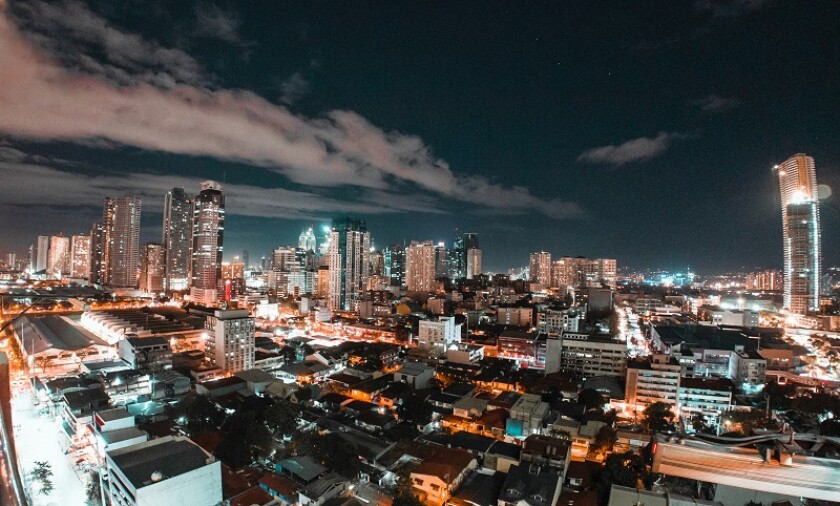Foreign entities are increasingly participating in the country’s economy. But some restrictions remain, as Rafael Morales of Morales Justiniano Peña & Lumagui illustrates
Certain sectors of the Philippine economy have been further liberalised or denationalised in the recent past. The march in this direction regained momentum with Republic Act no. 10641 in 2014, which opened up the banking sector by allowing eligible foreign banks to (i) acquire up to 100% of the voting stock of an existing local bank; (ii) establish a 100%-owned banking subsidiary; and (iii) form a local branch with full banking authority. Previously, qualified foreign banks could only acquire up to 60% of the voting stock of an existing local bank or (b) establish an up-to-60%-owned banking subsidiary, as the branching option had been closed.
Last year, Republic Act no. 10881 fully denationalised investments in adjustment companies established under the Insurance Code, lending companies organised under the Lending Company Regulation Act of 2007, financing companies formed under the Financing Company Act of 1998, and investment houses or underwriters of securities under the Investment Houses Law. The denationalisation is in line with 'the policy of the State to attract and promote investments from foreign individuals, partnerships, corporations and governments, including their political subdivisions, in activities that significantly contribute to industrialisation, socio-economic development and sustainable inclusive growth'. Prior to this, non-Filipino nationals were allowed to own only up to 40% of the capital stock of adjustment companies, 49% of lending companies, and 60% of financing companies and investment houses. Therefore, these entities were still partly nationalised before the enactment of Republic Act no. 10881. With the amendments introduced by this piece of legislation to the Insurance Code, the Lending Company Regulation Act, the Financing Company Act and the Investment Houses Law, the said entities may now be owned completely by foreign nationals.
Interestingly, the tenth regular foreign investment negative list (FINL) – which was promulgated by executive order no. 184 on May 29 2015 and listed the economic sectors open to foreign investment – already assumed that the said entities would be completely denationalised, because they were deleted from that negative list even before the passage of an amending law. At any rate, however premature the deletion was, the passage of Republic Act no. 10881 rectified the situation as there is now a statutory basis for such a deletion.
Still included in the FINL are areas of economic activity that are nationalised, wholly or partially, under the constitution of the Philippines, such as mass media and utilisation of marine resources in archipelagic waters, territorial sea and exclusive economic zone, wherein no foreign equity is allowed. Included too in the constitution are the exploration, development and utilisation of natural resources, as well as ownership of private land, operation of public utilities, and non-religious educational institutions – in each of which at least 60% of the voting stock is required to be owned by Filipino nationals. These restricted constitutional areas cannot be opened to foreign direct investments by mere legislation. A constitutional amendment is required and the Filipino people must approve the amendment in a plebiscite called for that purpose.
Given the constitutional prohibition against foreign ownership of private land, Republic Act no. 10641 granted some concessions to foreign banks licensed to do business in the Philippines. However, these concessions are not granted to foreign entities that are not banks operating in the Philippines.
Whereas before licensed foreign banks could not, at foreclosure sale, bid and purchase the land mortgaged as collateral to them, now (because of Republic Act no. 10641) they are allowed to 'bid and take part in foreclosure sales of real property mortgaged to them, as well as to avail [themselves] of enforcement and other proceedings, and accordingly take possession of the mortgaged property for a period not exceeding five years from actual possession'. Although the law mentions real property in general, it must be understood to cover only private land mortgaged to foreign banks, and the Bangko Sentral ng Pilipinas in circular no. 858 clarified this point by stating that there is no restriction on 'the right of the mortgagee-bank to own condominium units as provided under existing laws'.
Still, mindful of the constitutional prohibition, Republic Act no. 10641 restricts the transfer to the foreign bank of the title to the land, in case that bank is the winning bidder and purchaser at foreclosure. What is more, during the five-year period, the bank must 'transfer its rights to a qualified Philippine national, without prejudice to a borrower's rights under applicable law'. Otherwise, the foreign bank will 'be penalised half a percent per annum of the price at which the property was foreclosed until it is able to transfer the property to a qualified Philippine national'.
The borrower's rights mentioned above pertain to the right of a borrower to redeem the land bought by the foreign bank at foreclosure, within the period prescribed by law – which is generally one year from the registration of the sale in the pertinent register of deeds. This is unless the mortgagor is a juridical person and the foreclosure is made extra-judicially (ie not through court proceedings) in which case the right to redeem terminates upon the sale's registration which must be done not later than three months from foreclosure. Still, until the mortgagor redeems the foreclosed land, the foreign bank has the right to enter and take possession of the property, and administer the same in accordance with law.
Similar rights are granted to a lending company which, as noted earlier, may now be owned up to 100% by foreign nationals. At present, under the Lending Company Regulation Act (as amended by Republic Act no. 10881), a lending company whose capital is more than 40%-owned by foreign nationals, can bid and take part in any foreclosure sale of land mortgaged to it. If it is the winning bidder and purchaser, it has the obligation to transfer its rights to a qualified Philippine national within five years from its actual possession of the land.
It remains to be seen whether the continuing denationalisation of economic activities in the Philippines will entice more foreign direct investments in the country. At this early stage, it is encouraging to note that, for the first 10 months of 2016, net inflows to the Philippines of foreign direct investments reached $6.2 billion, higher by 2.2% than the foreign direct investments posted in the same period in 2015.
About the author |
||

|
|
Rafael A MoralesManaging partner, Morales Justiniano Peña & Lumagui Makati City, Metro Manila T: (632) 834 2551 Rafael Morales is the managing partner of Morales Justiniano Peña & Lumagui. His practice focuses on M&A, project finance, banking, debt capital markets and financial services regulatory. He held the same position at SyCip Salazar Hernandez & Gatmaitan. He has published books including The Philippine General Banking Law (Annotated) and The Philippine Securities Regulation Code (Annotated). He was president of the Inter-Pacific Bar Association. Recent projects on which he had worked include advising San Miguel Holdings in a PHP5.4 billion syndicated loan facility to its affiliate. Morales is admitted to the Philippines and New York bars, and holds a bachelor of arts in political science (cum laude) and a bachelor of laws (cum laude and class valedictorian) from University of the Philippines (1974), and a master of Laws from the University of Michigan. |
